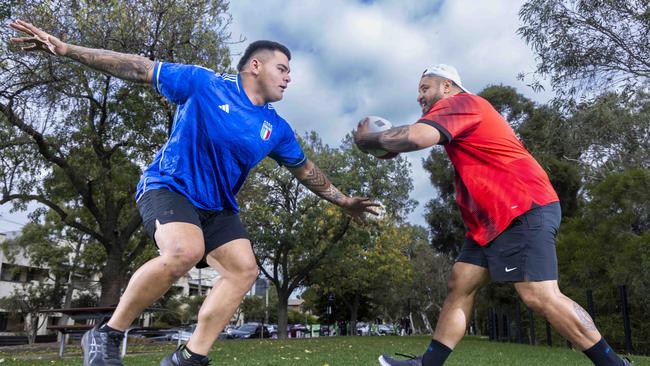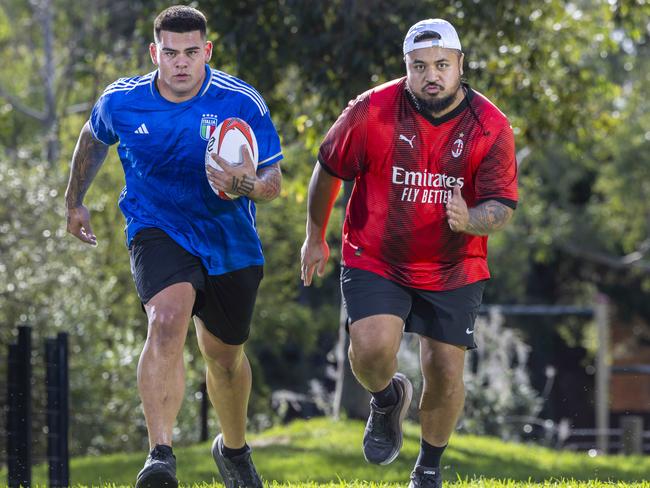Concussion expert Alan Pearce raises concerns over RUNIT Challenge
As the RUNIT Challenge prepares to stage its first Melbourne tournament, a concussion expert is highlighting the potential dangers of the hard-hitting sport.

Victoria
Don't miss out on the headlines from Victoria. Followed categories will be added to My News.
A leading concussion expert has raised the alarm about the growing popularity of a new combat game that sees players charge at each other.
Swinburne University neurophysiologist and Concussion Legacy Foundation co-founder Professor Alan Pearce slammed the upcoming Melbourne tournament for “RUNIT” and urged potential players to avoid the game.
“Don’t risk further damage to your brain by being involved in these purely violent activities, where the objective is to knock out your opponent,” he said.
“It just does not make sense at all.
“It just defies everything that we’ve learnt in the last twenty years now about repetitive impacts to the brain.
He said the rise of these types activities “just seem to be exploiting the pure injury aspect” of contact sports like rugby.
“For me it’s not a sport, because the only objective here is to knock out or physically harm your opponent by running straight at each other,” he said.
“I just have no words.”
The RUNIT Championship League sees two players — whose aim is to tackle or run over their opponent — charge at each other in an event inspired by the “running it straight” rugby pastime.

The hard-hitting collisions are scored by judges and Melbourne is set to host its first tournament next week, with a $20,000 cash prize on offer.
Organisers have said, unlike the informal “running it straight” game, RUNIT has a strict set of rules and medical staff assess players before and after each hit.
But Professor Pearce said the game — popular among rugby players — was like going to solarium after regularly tanning on the beach.
“We see those with repetitive concussions, you do have a greater risk of cognitive impairments,” he said.
“Your risk of motor neuron diseases is increased significantly.
“Dementia risk is significantly increased.”
Prof Pearce, who is also the Australian Sports Brain Bank Victorian manager, said experiencing multiple “non-concussive” head knocks was still a risk to brain health even if players did not suffer a concussion.
“That sort of repetitive exposure can lead to chronic traumatic encephalopathy or CTE,” he said.
“You don’t need to be concussed to be at risk of CTE.”
Concern about CTE, a progressive neurodegenerative disease associated with repeated head trauma, has been growing in recent years after several high-profile athletes were diagnosed post-mortem.
Symptoms include mood and personality changes, short-term memory loss, confusion and movement problems.
Prof Pearce said: “I have a lot of retired football players, rugby league players or athletes who are struggling like hell.”
“Rugby league has got the highest concussion rate of all the contact sports.
“But in rugby league at least there’s an opportunity for evading an opponent . . it’s a team of players.
“These new sorts of activities just seem to be exploiting the pure injury aspect of these sports.
“Any responsible medical and allied health organisation should actually be condemning this activity.”
Originally published as Concussion expert Alan Pearce raises concerns over RUNIT Challenge


